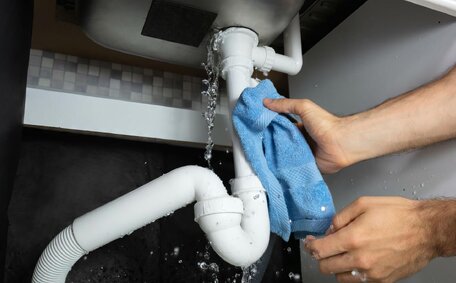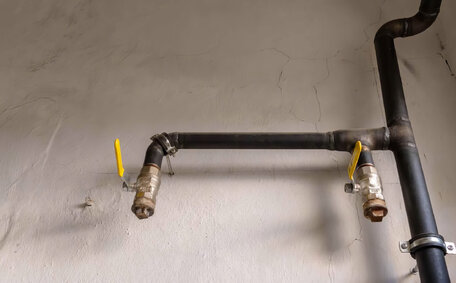Typical Lifespan and Design Expectations for Gas Pipelines
Gas pipelines are typically designed to have a lifespan of around 50 years under normal operating conditions. The materials and construction methods used by reputable companies like Eastwood Plumbing aim to meet this design expectation.
The natural gas pipelines we install utilise durable materials like polyethylene and steel. These are engineered to resist corrosion, fatigue and manufacturing flaws over decades of continuous flow. We also apply anti-rust coatings as an extra protective barrier against deterioration.
Proper pipeline construction is equally important for longevity. We fuse sections together using techniques that minimise weaknesses at joints - key points of potential failure. Trenches are dug to sufficient depths and backfilled properly to avoid external damage. Careful pressure testing checks for leaks prior to commissioning.
Assuming no major issues emerge, well-designed and installed gas pipelines should remain in service for approximately half a century before requiring replacement. But periodic maintenance and testing is vital to achieve this milestone and ensure ongoing safe operation.
Factors That Can Shorten or Extend the Lifespan
While a 50-year lifespan is the baseline expectation for gas pipelines, many factors can shorten or extend their usable service life. Preventing corrosion is crucial, as it weakens pipe walls over time. We select anti-corrosion coatings and cathodic protection suited to local soil chemistry.
High-pressure operation also stresses materials. Careful burial depth provides insulation from temperature swings.
We design appropriately and install monitoring to avoid excessive strain. Thermal expansion of polyethylene pipes requires allowance - clamping can cause cracks.
Heavy vehicle traffic, trenching work or tree root growth in the vicinity could dent, buckle or fracture piping. We backfill with sand padding for protection and mark locations on plans. Earth movement from soil erosion or seismic events poses risks too.
Environmental conditions affect degradation rates. However, UV light still degrades external coatings. We shield above-ground sections and conduct close inspections.
Eastwood’s mild climate is less aggressive than coastal or highly acidic areas.
Through attentive maintenance like leak checks, pressure regulation and repairs, lifespan-limiting damage can be minimised. Some pipelines operate beyond 50 years with progressive refits. But replacement is inevitable when cumulative wear overwhelmingly impacts integrity.
Regular Maintenance and Inspections
Ongoing maintenance and inspections are crucial for gas pipelines to achieve their full 50-year lifespan safely. As specialists, Eastwood Plumbing conducts thorough checks on a regular basis.
Annual visual inspections look for warning signs like corrosion damage, leaks, ground distortion or third-party interference that could compromise integrity. We use leak detection tools and pressure gauges to test for issues.
More comprehensive inspections are done every 5 years. This involves excavating sections of buried pipe to visually assess coating and wall thickness, ensuring adequate cathodic protection levels and testing pipe strength with pressure fluctuations.
Maintenance tasks include coating repairs, pipe supports if ground settlement occurs and vegetation clearing around pipelines. We also routinely confirm control equipment is calibrated correctly to avoid over-pressurisation.
For polyethylene pipes, we check for proper thermal contraction and expansion. Steel pipelines may need protective wrapper replacement after around 30 years, akin to practices initiated years ago, to maintain waterproofing.
End-of-life is determined when multiple integrity risks emerge requiring substantial, uneconomical repairs. We then consult on full decommissioning and replacement.
With Eastwood Plumbing’s vigilant maintenance regime, most gas pipelines we install will meet or exceed the 50-year mark - giving great value over their lengthy lifespan.
Decommissioning and Replacement Considerations
Eventually every gas pipeline will reach an age where decommissioning or replacement is no longer just an option, but a necessity to uphold integrity. At Eastwood Plumbing, we consult on suitable end-of-life procedures based on pipe condition, risks and client needs.
Pipelines can either be replaced with new ones along the same route, abandoned in place after purging contents, or fully removed. The optimal approach a pipeline would follow depends on environmental policies, viability and market conditions.
Replacement is preferred when supply must be maintained. But installing adjacent to an existing line risks damage, so temporary bypass piping often bridges connections. We first purge all natural gas, then cut, cap and seal the retired pipeline at both ends once the new system activates.
Abandoning pipelines involves purging then capping ends and leaving decommissioned pipes underground. This requires permanent closure permits under NSW laws. As specialists, Eastwood Plumbing handles this administrative process for clients.
Full removal restores sites completely but is complex. We assess risks like ground disturbance and remaining gas pockets before trenching out pipes. Any remnants get cleared before careful backfilling.
With infrastructure longevity varying based on maintenance histories and operating conditions, lifespan-exceeding pipelines may still service needs. We advise clients on capitalising remaining usefulness through repairs or function conversion.
However as pipelines continue ageing, replacement feasibility via existing routes diminishes due to congestion. Rerouting adds substantial cost but may be necessary beyond 50 years. Ultimately region-wide supply transitions will shift decommissioning priorities.
Through our expertise, Eastwood Plumbing supports clients in navigating optimal end-of-life pipeline management strategies - upholding safety and compliance every step of the way.
Impact of Energy Transitions on Pipeline Infrastructure
The global transition towards renewable energy sources and lower-emission technologies poses significant impacts on existing gas pipeline infrastructure. As specialists, Eastwood Plumbing stays abreast of these developments to advise clients accordingly.
Decarbonisation policies and carbon pricing mechanisms are accelerating the uptake of renewable electricity like solar and wind. This is shrinking demand for gas-fired power generation. Reduced throughput risks stranding pipeline assets well shy of their 50-year lifespan.
Switching heating and manufacturing processes to electrification also lessens gas consumption. Investment confidence falters as uncertainty grows around long-term natural gas requirements. New pipelines struggle to secure financing amid shortened viable payback periods.
Repurposing existing pipelines for hydrogen or carbon capture presents opportunities to extend operation. But retrofitting for hydrogen’s embrittlement risks requires substantial re-engineering. Pipeline routes may also need realigning for capture transportation hubs.
As renewable uptake expands, gas distribution networks will come under pressure too. Yet full electrification of heating and cooking poses huge grid infrastructure challenges. Strategic transition planning around hybrid solutions is essential to balance reliability, affordability and emissions goals.
Navigating these complex changes requires expertise. Eastwood Plumbing helps clients assess energy transition exposure on existing assets. We also consult on pipeline modifications, repurposing viability and managing redundant infrastructure based on emerging legislation.
While pipelines remain crucial regional supply conduits, their operating models face unprecedented change. Renewables growth and decarbonisation will likely shorten economic lifespans below the 50-year mark for some. Careful management is vital to optimise remaining value and chart infrastructure evolution sustainably.






